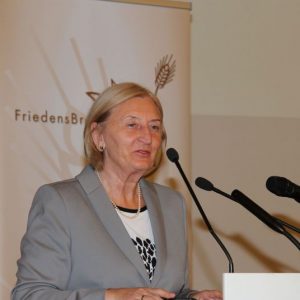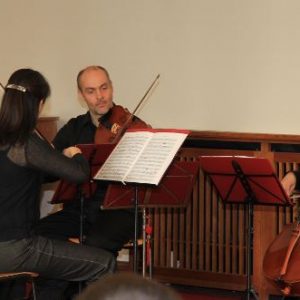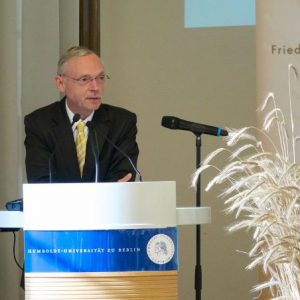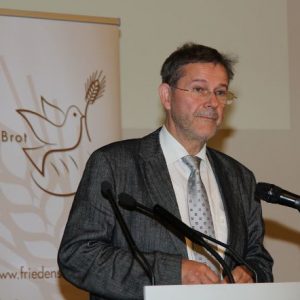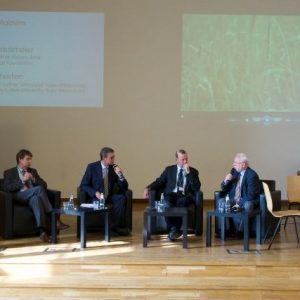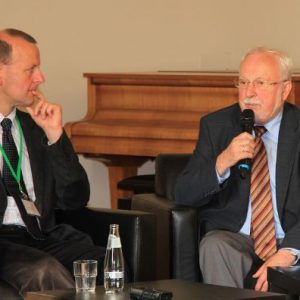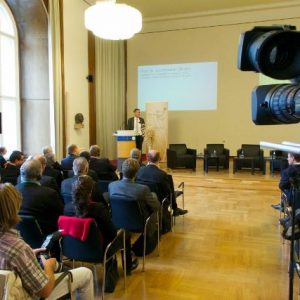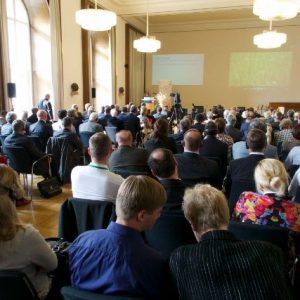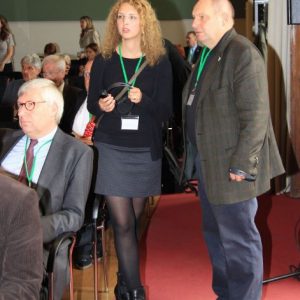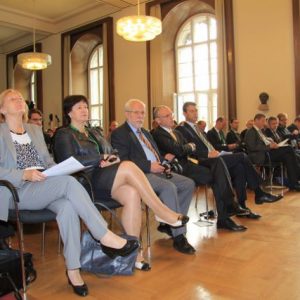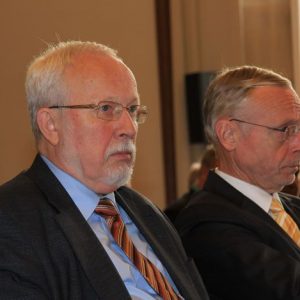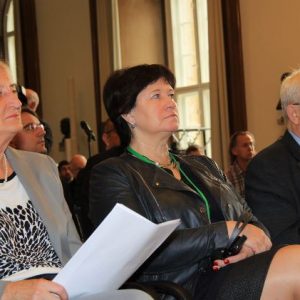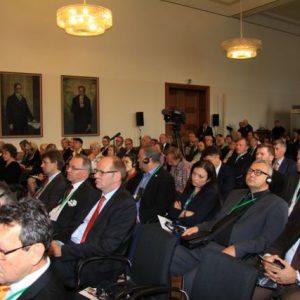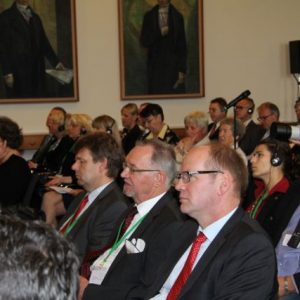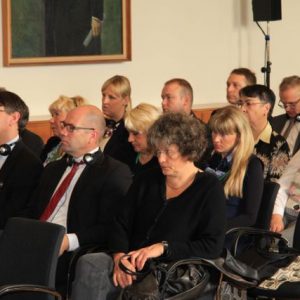Annual conference
Annual conference
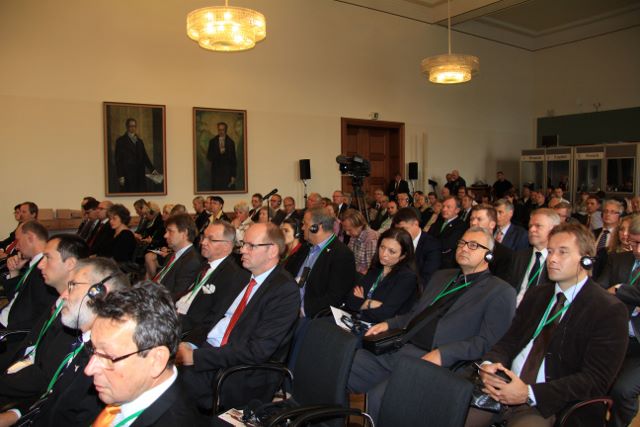
(Report in 5 parts)
In the course of the ceremonial act in the fully occupied ‘Senatssaal’ of the Humboldt-University in Berlin – the musical framework being provided by the Humboldt-Quartet – the idea to develop the European conference in Berlin and Brandenburg on “Peace and Agriculture” into a lasting talking and meeting platform “European PeaceBread” was further substantiated: Polish Deputy Minister Zofia Szalczyk confirmed on behalf of her Minister Marek Sawicki that Poland will invite for the next PeaceBread conference in September 2015. She underlined the special contribution of her country – and primarily the the contribution of the trade union movement Solidarnosc and of the murdered priest Jerzy Popieluszko – to obtaining freedom and the peaceful growing together of Europe.
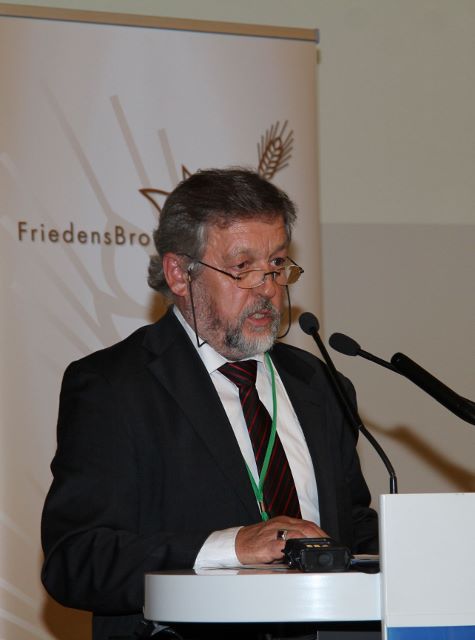
At the beginning, PeaceBread Board Prof. Dr. Frank Ellmer commemorated the deceased “Mauerpfarrer” (wall priest) Manfred Fischer, who markedly contributed to the establishment of the field of rye at Bernauer Straße. Prof. Ellmer recognised the foundation of the civil society initiative PeaceBread that was supported by personalities from science, business, associations, churches and politics. In their welcome addresses, the President of Humboldt-University Berlin, Prof. Dr. Jan-Hendrik Olbertz, and the Secretary of State Bernd Krömer, speaking on behalf of the Federal State of Berlin, emphasised their sympathy and support for the idea of PeaceBread.
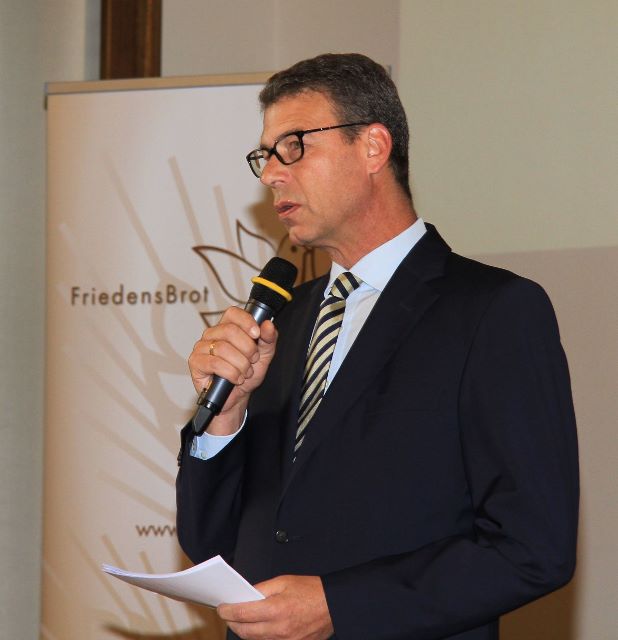
The moderator oft he ceremony was Christoph Lanz, Journalist from Berlin. “Sow and harvest in peace. Why commemorate?”, was his question to the panel discussion with the last Prime Minister of the GDR (German Democratic Republic), Lothar de Maizière, historian Prof. Dr. Axel Klausmeier from the Stiftung Berliner Mauer (Berlin Wall Foundation) and the expert in arable farming Prof. Dr. Olaf Christen, Vice-Dean of the University Halle-Wittenberg. With the field of rye, a section of the former death strip in the middle of Berlin turned into a “strip of life” – thus making the history of division and suffering as well as the peaceful overcoming easier to understand in particular for younger people, as for them “the wall is as far away as the Thirty Years’ War.” Bread was also characterised as particularly strong symbol for peace, a fulfilled life and good governance. The documentary film that had been produced by FILM-Art Potsdam was shown at the end of the ceremonial act, and gave evidence of the strong echo to PeaceBread in all twelve participating countries.

